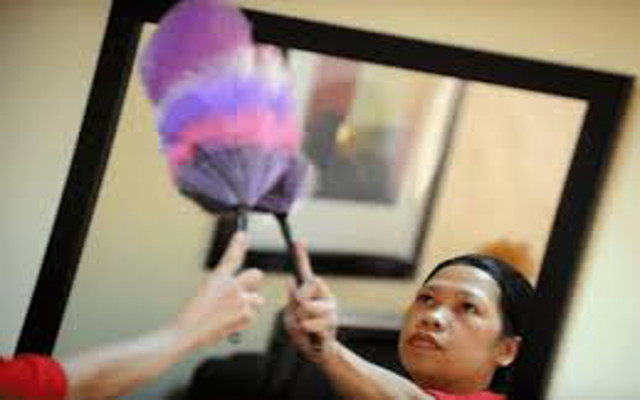Despite domestic worker labor bans, abuse against Indonesian women is still widespread in the United Arab Emirates (UAE). Less than one week ago, an Emirati court sentenced three human traffickers to prison. They will each spend three years in jail for forcing an Indonesian women into prostitution. Instead of protecting female Indonesian domestic workers in the UAE, the worker ban has generated a large market for illegally trafficked maids into the Gulf Coast Cooperative (GCC) state.
In October 2013, Indonesia issued a moratorium on the recruitment of housemaids, banning domestic workers from taking positions specifically in the UAE. In May 2016, Indonesian Manpower Minister M. Hanif Dhakiri confirmed that the moratorium would remain enforced and that there was no current plan for it to be revised or revoked.
Rampant abuse against domestic workers caused Indonesia to enact the ban, but the threat of abuse has not deterred Indonesian women from trying to work in the GCC. The three trafficking convictions in the UAE come just days after Migrant Care, an Indonesian advocacy group, released the results of a survey that found hundreds of Indonesian workers are still leaving their home country despite an active labor ban. Executive Director of Migrant Care Anis Hidayah states that with the large number of workers still travelling to the UAE for employment, “the moratorium exists only on paper.”
As the ban remains active, any travel to the UAE by women seeking positions as domestic workers is illegal. Indonesian officials estimate that there are 2.3 million registered Indonesian domestic workers abroad and about the same number of undocumented laborers, thousands of whom work in the UAE.
Women are lured to the UAE by promises of higher wages, motivating them to voluntarily traffic themselves to the GCC member. They enter the country on tourist visas and stay as workers in the positions recruitment agencies find for them. Recruitment agencies have taken this opportunity to charge Emirati customers more for in-demand Indonesian maids. Wisnu Suryo Hutomo, Chargé d’affaires at the Indonesian Embassy in Abu Dhabi, has said that “information suggests that the [recruitment] agents charge Dh17,000-18,000 from an employer for supplying an Indonesian housemaid. When the process was legal, the cost was around Dh11,000-Dh 12,000.”
The justification for the ban’s enactment are not unfounded. Most domestic workers are expected to pay fees to recruitment agencies for an opportunity to go abroad. Many go into debt to make these payments. Employers often subject their domestic workers to physical and sexual abuse and long hours with little time off. They also take their employees’ passports and withhold wages in attempt to immobilize their workers and ensure worker dependence upon them.
Due to widespread abuse, many domestic workers attempt to flee from their employers. Women who run away are vulnerable to further abuse and exploitation. In the UAE, many women are trafficked into prostitution after running away from abusive employers. In the emirate of Dubai alone, in 2010 it was estimated there were over 30,000 prostitutes, many of whom are victims of sex trafficking. Evidence suggests that this number has only grown.
The Indonesian woman who was recently abused by the three convicted traffickers was forced into prostitution in a common manner. When she had tried to escape from prostitution, her traffickers physically attacked and assaulted her into submission. They also allegedly subjected her to “threats and psychological torture to restrict her movements.”
The Indonesian government’s enactment of a labor ban for domestic workers is a step forward in acknowledging the abuse and exploitation of these workers in the UAE. However, the ban by itself is not enough to stop these abuses and protect female Indonesian domestic workers. The ban has contributed to a growing black market for domestic workers in the UAE, causing the human trafficking of Indonesian women to become more lucrative. While some women voluntarily enter the UAE, they are still victims of human trafficking.
Abuse does not only happen to Indonesian domestic workers. Labor bans need to be coupled with other concrete actions, domestically within the UAE and internationally among source countries. The international community needs to work together to ensure safe and legal labor migration.
Brittany Hamzy is an Advocacy Fellow at ADHRB.





